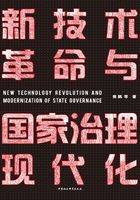
三 国家垄断时代的结束
2013年,美国《外交政策》前总编辑摩伊希斯·奈姆出版了一部书,书题是:“权力的终结:从密室到战场,从教会到国家,为什么如今掌权这么难?”这部书反复提到马克斯·韦伯,提到他对国家的经典定义,但它宣布:“终极垄断终结了!”[32]这里所谓的“终极垄断”就是指“对正当使用暴力的垄断权”。这部书出版后受到美国前总统克林顿、金融大亨索罗斯、脸书创始人马克·扎克伯格等人的高度评价,而它要传递的核心要义可以概括为一句话:“在21世纪,获取权力更容易了,行使权力更难了,丧失权力更常见了。”[33]另一部出版于两年后的书以“颠覆性的力量:数字时代的国家危机”为题,也引述了韦伯的国家定义,并得出同样的结论:“国家面临着根本性的”改变,“国家的垄断”已经结束。[34]
皮之不存,毛将焉附。如果韦伯对国家的定义不再适用,建立在这个定义基础上的国家理论是不是也该改写了?如果国家理论需要改写,现代政治学恐怕也到了改写的时候了。
(王绍光)
[1] 本章内容首发于《中央社会主义学院学报》2019年第5期。
[2] Raymond G.Gettel,Introduction to Political Science,New York:Ginn and Co.,1910,p.4.
[3] James W.Garner,Introduction to Political Science:A Treatise on the Origin,Nature,Functions,and Organization of the State,New York:American Book Co.,1910,p.15.
[4] Johann Caspar Bluntschli,The Theory of the State,Ontario:Batoche,2000.
[5] Peter B.Evans,Dietrich Rueschemeyer,Theda Skocpol,Bringing the State Back in,Cambridge:Cambridge University Press,1985.
[6] Rod Hague,Martin Harrop,John MacCormick,Political Science:A Comparative Introduction,London:Palgrave Macmillan,2016.
[7] 马克斯·韦伯:《学术与政治:韦伯的两篇演说》,冯克利译,生活·读书·新知三联书店1998年版,第55页。
[8] 马克斯·韦伯:《学术与政治:韦伯的两篇演说》,冯克利译,第55页。
[9] Andreas Anter,Max Weber’s Theory of the Modern State:Origins,Structure and Significance,London:Palgrave Macmillan UK,2014,pp.1-2.
[10] 罗竹风主编:《汉语大词典》,汉语大词典出版社1986年版,第7277页。
[11] 吕叔湘、丁声树主编:《现代汉语词典》,商务印书馆2012年版,第1042页。
[12] Oxford English Dictionary,https://www.oed.com.
[13] Robert L.Carneiro,“A Theory of the Origin of the State,”Science,Vol.169,Issue 3947,Aug.21,1970,pp.733-738.
[14] Charles Tilly,Coercion,Capital and European States,AD 990-1990,Cambridge,MA:Wiley-Blackwell,1992;Ian Morris,The Measure of Civilization:How Social Development Decides the Fate of Nations,Princeton,NJ:Princeton University Press,2013.
[15] 马克斯·韦伯:《学术与政治:韦伯的两篇演说》,冯克利译,生活·读书·新知三联书店1998年版,第55页。
[16] 参见Stuart Elden,“Land,Terrain,Territory,”Progress in Human Geography,Vol.34,No.6,2010,p.800.
[17] 罗竹风主编:《汉语大词典》,汉语大词典出版社1986年版,第11012页。
[18] William E.Connolly,“Tocqueville,Territory and Violence,”Theory,Culture & Society,Vol.11,No.1,February 1994,pp.23-24.
[19] Norman Uphoff,“Distinguishing Power,Authority & Legitimacy:Taking Max Weber at His Word by Using Resources—Exchange Analysis,”Polity,Vol.22,No.2,Winter 1989,pp.295-322.
[20] Clive Humby,Address at the ANA Senior Marketer’s Summit at the Kellogg School,2006.见Michael Palmer,“Data is the New Oil”,ANA Marketing Maestros,Nov.3,2006,5:43 AM(http://ana.blogs.com/maestros/2006/11/data_is_the_new.html).
[21] Maria Deutscher,“IBM’s CEO Says Big Data is Like Oil,Enterprises Need Help Extracting the Value,”Silicon Angle,March 11,2013(http://siliconangle.com/blog/2013/03/11/ibms-ceo-says-bigdata-is-like-oil-enterprises-need-help-extracting-the-value).
[22] 马云:《未来制造业要的不是石油 最大的能源是数据》,2015年5月27日,每日经济新闻(http://finance.ce.cn/rolling/201505/27/t20150527_5469537.shtml)。
[23] “The World’s Most Valuable Resource is No Longer Oil,But Data,”The Economist,May 6,2017(https://www.economist.com/leaders/2017/05/06/the-worlds-most-valuable-resource-is-no-longer-oil-but-data).
[24] Gordon Corera,“Rapid Escalation of the Cyber-Arms Race,”BBC News,April 28,2015(https://www.bbc.com/news/uk-32493516).
[25] Michael Joseph Gross,“Silent War,” Vanity Fair,July 2013,https://www.vanityfair.com/news/2013/07/new-cyberwar-victims-american-business;Lillian Ablon,Martin C.Libicki,and Andrea A.Golay,Markets for Cybercrime Tools and Stolen Data:Hackers’ Bazaar,Washington,DC:Rand,2014.
[26] 《628名警员资料遭“匿名者”窃取,网罪科立案调查》,2019年6月26日,《苹果日报》(https://hk.news.appledaily.com/local/realtime/article/20190626/59760599)。
[27] 《AI造出来个“假”奥巴马,你听到的奥巴马演讲可能也是假的》,2017年7月18日,图普科技(https://36kr.com/p/5083945);《只需54块钱,就能让AI伪造联合国政要发言》,2019年6月21日,安全内参(https://www.secrss.com/articles/11564)。
[28] “Internet Users,1995-2008,”Global Policy Forum(https://www.globalpolicy.org/tables-and-charts-ql/27519-internet-users.html).
[29] John Perry Barlow,“A Declaration of the Independence of Cyberspace,”February 8,1996(https://www.eff.org/cyberspace-independence).
[30] 周舟:《新闻分析:美对伊朗发动网络战凸显“贼喊捉贼”式网络霸凌》,2019年6月24日,新华社(http://www.xinhuanet.com/2019-06/25/c_1124670198.htm)。
[31] 霍布斯:《利维坦》,黎思复、黎延弼译,商务印书馆1986年版,第63页。这句话被译为“学识是一种微小的权势”。
[32] Moises Naim,The End of Power:From Boardrooms to Battlefields and Churches to States,Why Being in Charge Isn’t What It Used to Be,New York:Basic Books,2013,p.103.
[33] Moises Naim,The End of Power:From Boardrooms to Battlefields and Churches to States,Why Being in Charge Isn’t What It Used to Be,New York:Basic Books,2013,p.14.
[34] Taylor Owen,Disruptive Power:The Crisis of the State in the Digital Age,Oxford:Oxford University Press,2015,p.191.